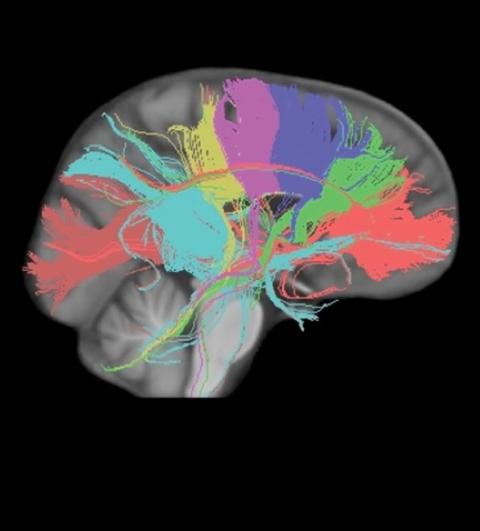The Effect Alcoholic Fathers Have on Their Daughters
The Effect Alcoholic Fathers Have on Their Daughters
There are about 26.8 million children in the U.S. who are exposed to alcoholism within their families at varying degrees. To put it in better perspective, there is one in eight children with an alcoholic in their family, are you one of them? It is not always visible to the eye when someone is experiencing alcoholism in their household. Some people are good at hiding mental trauma, while others are not. Some people are even good at hiding physical trauma, but some people physically cannot. For the purpose of this article, I am focusing on daughters who have alcoholic fathers.
Being a daughter of an alcoholic affects you in more ways than anyone could imagine. You come home from school or from hanging out with friends, and right before you walk through the door, you get this feeling in the pit of your stomach wondering; Is he drunk? How drunk is he? Is he in a bad mood? Did I do something to upset him? Can I make it to my room without him picking a fight? No child should ever have to feel that way when going to their home, which is supposed to feel safe and be somewhere you can always return to.
One time I was sitting on the stairs crying to the point of hyperventilating, terrified that he would start hitting me. I got sprayed with more spit as he bent down to scream in my face some more, so I brought my hands to wipe my tears while simultaneously trying to black my face from his spit. As I covered my face with my hands, I felt his warm hands, squeeze my arm so tight I could feel the pressure shifting my bones.
Living with an alcoholic father can mean many things. You can expect angry outbursts, unnecessary arguments, inconsistency, and unreliability. It affects their children in many ways and at all stages of life, from infancy up to adulthood. Alcoholic fathers can have a detrimental effect on their daughters and their mental and physical health.
Fathers with alcoholism have many negative consequences on a daughter's development and well-being. They group up in nonstop chaos and are constantly affected by the instability of the household. They begin to feel unworthy, unloved, unsupported, like they're not enough, or did something wrong. One in eight children has lived in a home with at least one parent with a substance use disorder, according to the Substance Abuse and Mental Health Services Administration (SAMHSA).
Young children may struggle with the consequences of their father's impact on the social, emotional, and cognitive aspects of who they are. Some of the struggles young daughters face due to their father's addiction is guilt over their father's drinking, the development of, or increased levels of anxiety, depression, and lowered self-esteem. They may also develop issues with self-control, behavioral issues, an attachment disorder, and a lack of trust in others.
Many daughters living in an alcoholic household begin to believe that their father's outbursts, mood swings, and unreliable temper is their fault. They can also tend to go into denial to avoid shame and attempt to feel a sense of normalcy. Often times that happens because the child learns to internalize their parent's behavior, putting them in a spiral of confusion, denial, and guilt.
The effects of an alcoholic father do not come to a halt once the child becomes an adult. Some people may think it would be easy to leave that part of their life behind once they grow up and move out. The truth that many children of alcoholics understand, is that it follows them around for many years beyond childhood.
Growing up with an alcoholic father in the house makes dysfunctional relationships seem normal. This then causes that child to grow up putting themselves into unhealthy and dysfunctional relationships because that feels comfortable for them. The lack of basic needs being met in childhood can negatively affect the child's development of secure attachments. In adulthood, this leads to unhealthy behaviors and trust issues in relationships. Since they had to rely on themselves more as a child, they may feel responsible for others, take on more than they should at work or school, and make themselves feel like they need to be independent and cannot rely on others for help.
Some may say, "Well, she probably did something to upset him," or "He got set off because she couldn't keep her mouth shut." Thinking about it logically, that does not make sense. Alcohol is known to alter brain chemistry. According to the National Institute on Alcohol Abuse and Alcoholism (NIAAA), "Alcohol interferes with the brain's communication pathways and can affect the way the brain looks and works. Alcohol makes it harder for the brain areas controlling balance, memory, speech, and judgment to do their jobs, resulting in a higher likelihood of injuries and other negative outcomes."
"Diffusion tensor imaging (DTI) of fiber tracks in the brain of a 58-year-old man
with alcohol use disorder. DTI maps white-matter pathways in a living brain."
Image courtesy of Drs. Adolf Pfefferbaum and Edith V. Sullivan.
Some may still blame the daughter or the rest of the family, but it really comes down to the fact that the father is an alcoholic. It changes the way he thinks and feels, he becomes more sensitive, his tempe worsens, and frankly, it's not the daughter's or the rest of the family's job to walk on eggshells to protect themselves. NIAAA also says, "Long-term heavy drinking causes alterations in the neurons, such as reductions in their size." Alcohol affects brain chemistry when you do it moderately, but the amount alcoholics drink and how often they drink affects them significantly more.
So, my question to the people who will argue this topic is, how can you excuse the alcoholic and blame the daughter when it's the alcoholic doing it to himself? Yes, there are often other reasons behind alcoholism, such as depression, but again, why would you blame the daughter?
Although the purpose of this article is to explain the effects of an alcoholic father on his daughter, it also goes far beyond an alcoholic father and his daughter. It could be a mother and a son, mother and daughter, or father and son. It does not matter who the alcoholic is and who the receiver or witness is; what it comes down to is that alcoholism is a disorder that cannot be blamed on the people surrounding the alcoholic. Since it is specific to each circumstance, it's difficult to place the blame on anyone when you're talking generally about the topic.
Every situation is different, but the effects the alcoholic fathers have on their daughters are undeniable. The guilt, shame, fear, and sadness that come with having an alcoholic father should not prevent her from having a happy, successful, and functional life. It's hard to heal from experiences like these, and many people do not understand the turmoil that children of alcoholics go through. Alcoholic fathers can have a detrimental effect on their daughters and their mental and physical health. What is most important for children of alcoholics to understand is that a parent's poor behavior is certainly not their fault.


Comments
Post a Comment